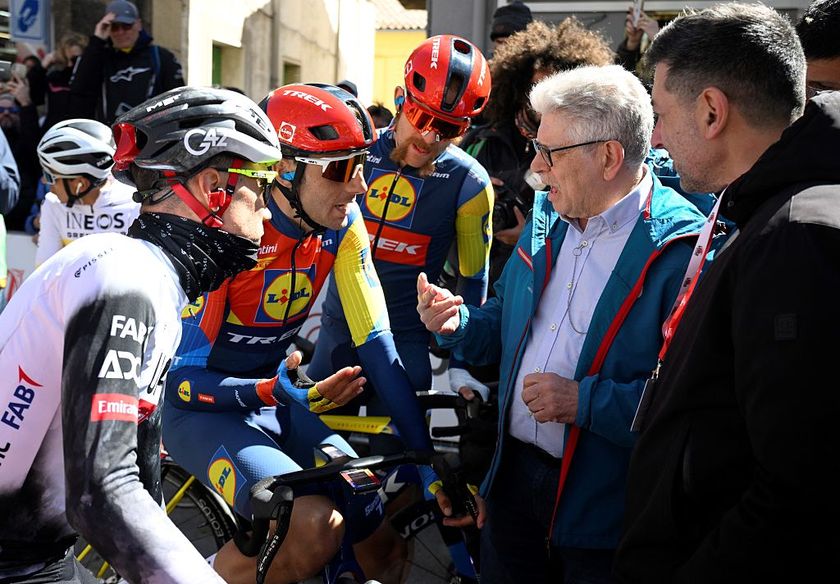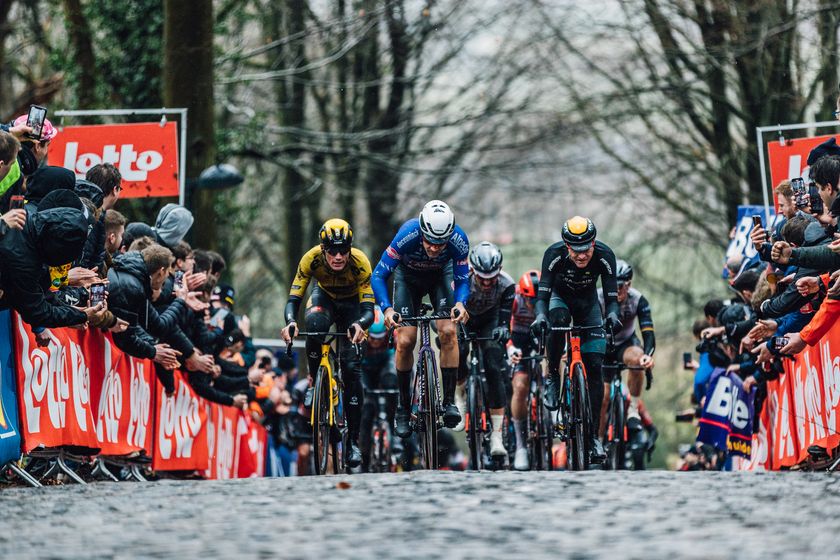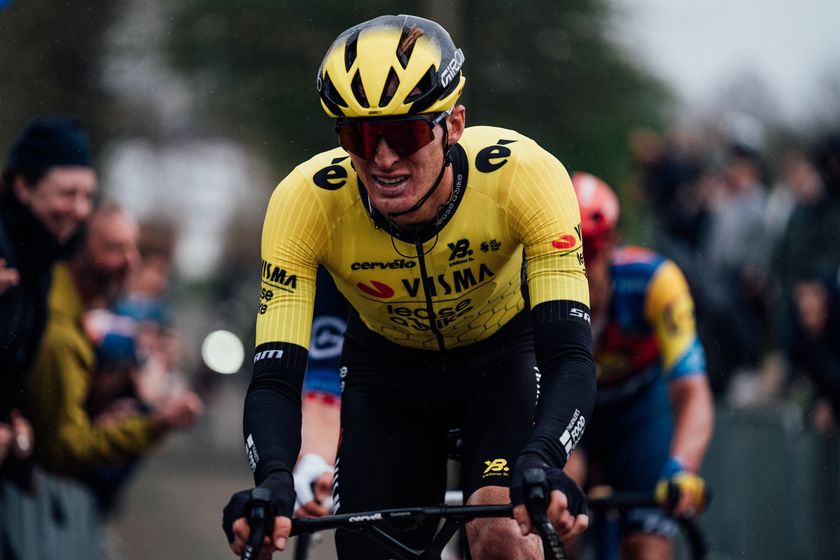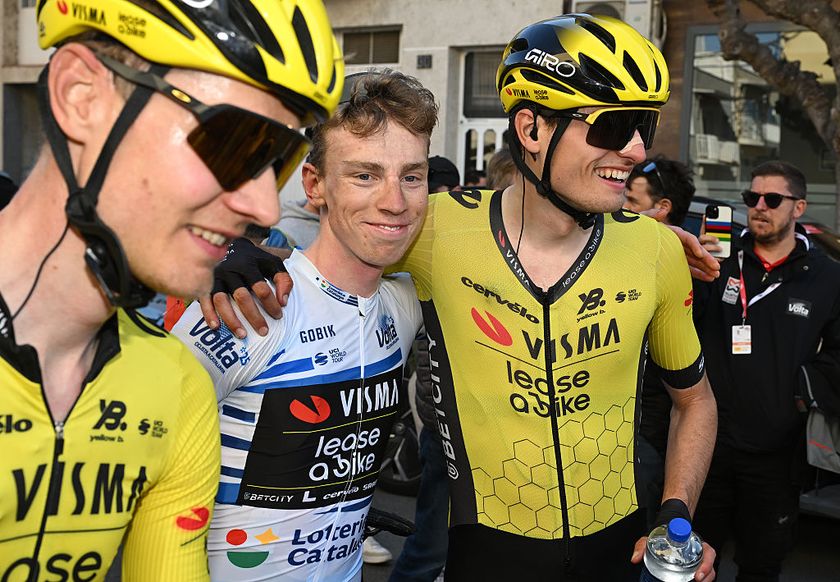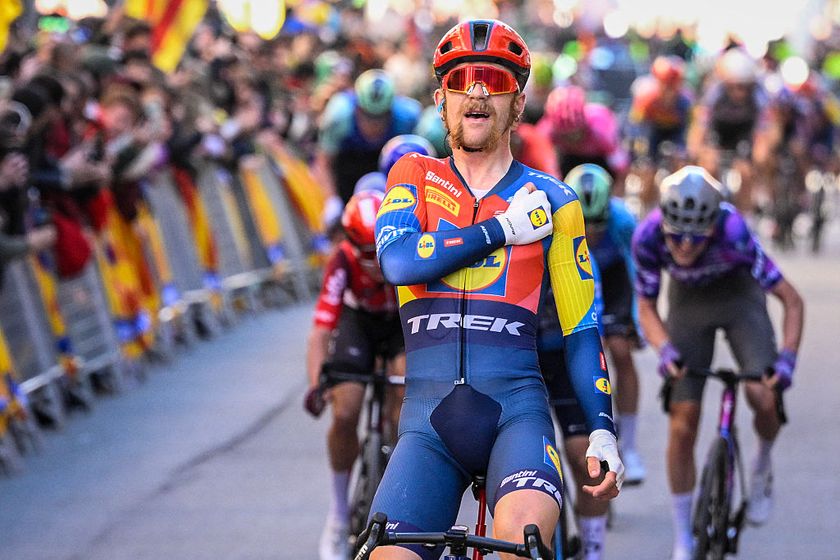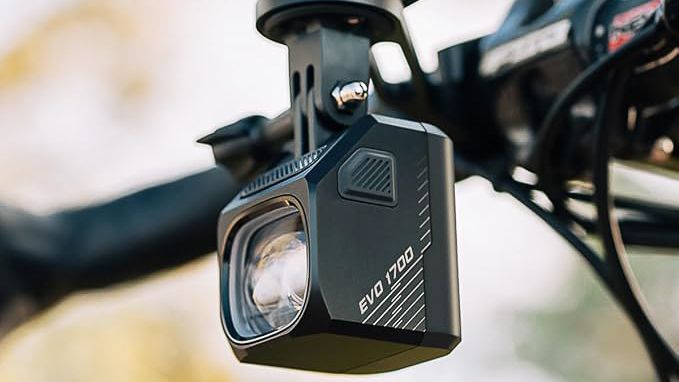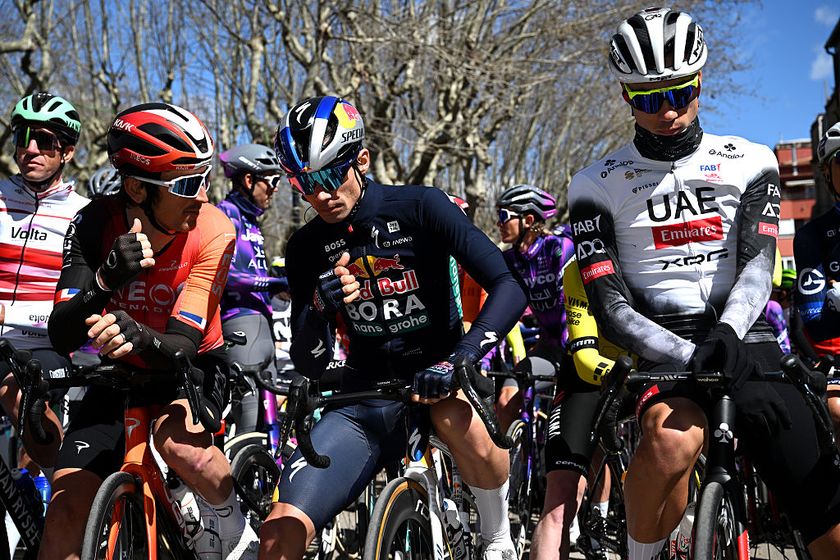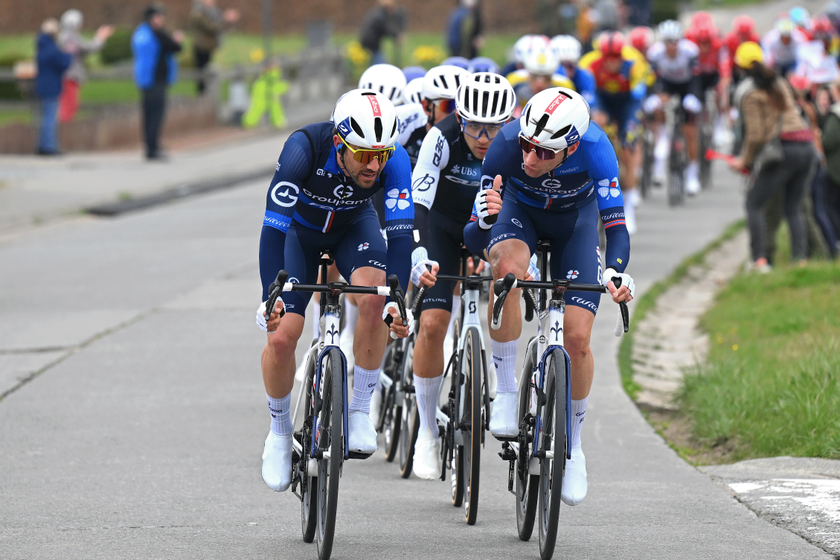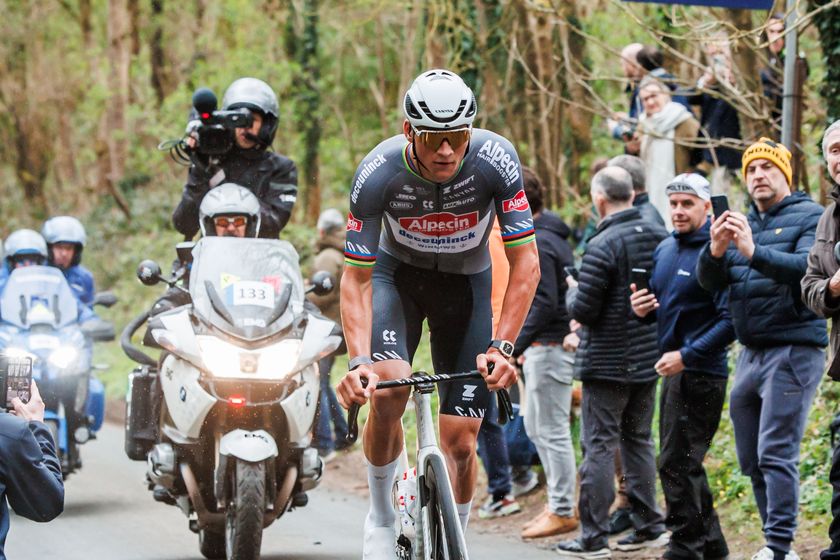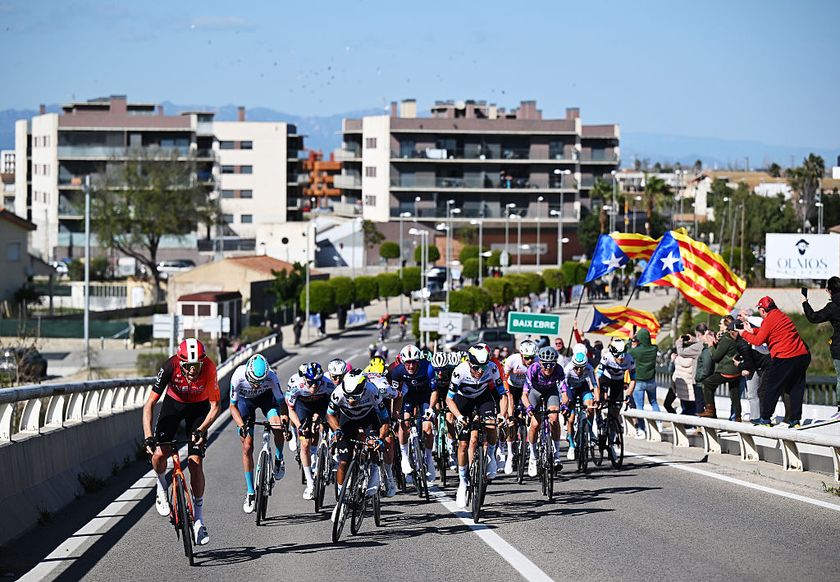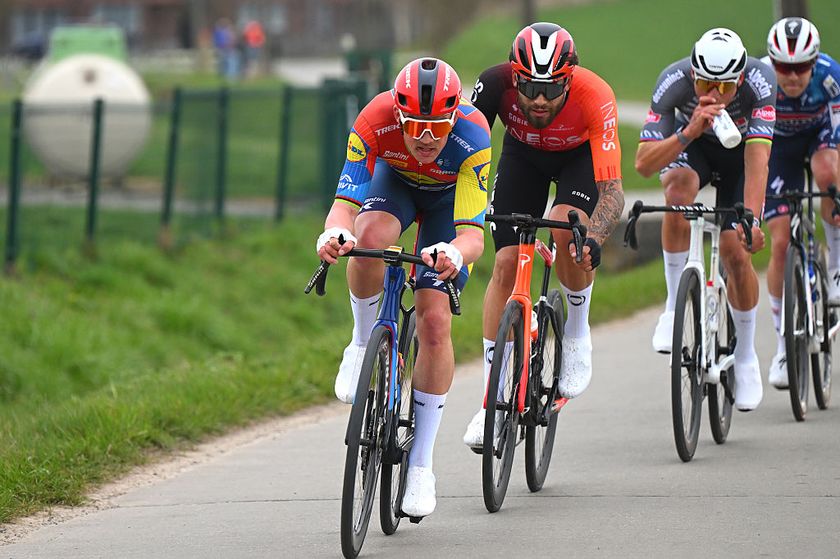Astana pick up the pieces at Vuelta a España after Nibali’s expulsion
Team down to seven riders after Tiralongo forced out by injuries





The melodrama wasn’t quite at the level of Richard Virenque’s tearful "Vive Le Tour de France" speech in the back room of the Café Chez Guillou in 1998, but emotions were still running high in the Astana camp in Mijas on Monday in the aftermath of Vincenzo Nibali’s expulsion from the Vuelta a España.
Though manager Giuseppe Martinelli effectively barred himself from addressing the press ahead of stage 3, lest he say something he might regret, there was no silenzio stampa imposed by the team, and directeur sportif Stefano Zanini was delegated to speak on the management’s behalf.
After starting with an apology, Zanini looked to place Nibali’s offence – holding onto a team car as he chased back on to the peloton after being caught up in a crash with 30 kilometres remaining – into the context of his ill-starred season.
"You have to understand a bit the moment in Vincenzo’s season. He prepared the Tour and it went badly because he wanted to win. Then he prepared for the Vuelta and straight away on the first day he had this problem because of the crash and the chase," Zanini said, his voice raw.
"Unfortunately he’s just had so much bad luck all year. Yesterday, there was this small moment, just seven seconds out of a 20-kilometre chase… The jury made its evaluation and applied the rules, but we think a five or ten minute penalty for Vincenzo would have been enough."
At one point, Zanini seemed to be fighting back the tears as he fielded questions on Nibali’s expulsion and its effect on an Astana squad that has already generated a hefty share of negative publicity this past year, from the spate of doping cases last season to the uncertainty over its WorldTour licence to the furore over Lars Boom’s cortisol levels ahead of the Tour.
"We’ll go on because we still have a very strong team and we want to show that it was a small episode that happens to everyone and will happen to others too," Zanini said. "We’ll do our job with our heads held high until the end."
Get The Leadout Newsletter
The latest race content, interviews, features, reviews and expert buying guides, direct to your inbox!
Abandoned
In an interview published in Gazzetta dello Sport on Monday, Nibali had offered a mea culpa for accepting the very sticky bottle, but the Italian also made some thinly-veiled criticism of his Astana team, complaining that he had been "abandoned" in the immediate aftermath of his crash.
Such comments can hardly been appreciated aboard the Astana bus on Monday but Dario Cataldo took a diplomatic line when asked about Nibali’s assessment. Cataldo was one of three riders, along with Alessandro Vanotti, Diego Rosa and Andrey Zeits, to help pace Nibali back towards the cavalcade of cars behind the peloton following the crash.
"It’s hard enough to get one leader back into a race never mind two," Cataldo told Cyclingnews. "Two riders stayed with Aru and three of us waited for Vincenzo and we gave everything to bring him back up as far as the team cars, where he left us to get back up to the peloton.
"But in any case it’s always hard to get back on and he showed that by losing 1:30 in the finale. I’m sure people will claim he took an advantage by holding onto a car but in reality that wasn’t the case."
Cataldo acknowledged that Nibali had no recourse for appeal against the commissaires’ decision to exclude him from the race, but he confessed to a degree of bemusement at how social media had appeared to bring the incident to the attention of the race jury, who had not seen the offence in person and had apparently not noticed it from the live television pictures.
"We have to accept the decision but we were victims of circumstances a bit. After a crash, there are usually things that are tolerated by all of the teams and by the commissaires. It happens all the time, to the extent that none of our colleagues complained about it, because this is something that happens a lot, a sort of unwritten rule," Cataldo said.
"But there was that video proof that caused such a fuss and the commissaires reacted to it, and we’ve paid for it. I’ll be interested to see how they deal with other situation like that in the rest of this Vuelta."
Fabio Aru, meanwhile, the man who began the Vuelta seemingly dividing leadership duties with Nibali, refrained from discussing Sunday’s incident, simply pretending that he could neither hear nor see the reporters who tried to flag him down as he rode to sign on. Yet another weapon in the armoury of a Grand Tour contender that the young Sardinian has perfected with prodigious ease.
Nibali’s expulsion may have at least have the benefit of clarifying the leadership debate for Aru (though Mikel Landa might yet have his say), but he will certainly rue the absence of another Sicilian, Paolo Tiralongo, from his side for the remainder of this Vuelta. The veteran is at once Aru’s gregario di lusso, confidant and training partner during his long stints at altitude in Sestriere.
Tiralongo received 20 stitches to his face after he came down in the same crash as Nibali on Sunday, and though he started stage 3, his injuries were such that he was forced to abandon the Vuelta on the road to Malaga on Monday afternoon.

Barry Ryan was Head of Features at Cyclingnews. He has covered professional cycling since 2010, reporting from the Tour de France, Giro d’Italia and events from Argentina to Japan. His writing has appeared in The Independent, Procycling and Cycling Plus. He is the author of The Ascent: Sean Kelly, Stephen Roche and the Rise of Irish Cycling’s Golden Generation, published by Gill Books.
